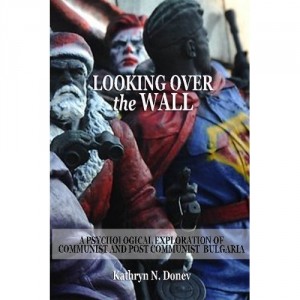For Christmas, Bulgaria dismantled a Soviet monument
SOFIA, Bulgaria — Bulgaria on Wednesday began dismantling a monument to the army of the Soviet Union that dominated the skyline of the capital, Sofia, for nearly 70 years and was widely seen as a symbol of Russia’s influence in the Balkan country.
The monument was erected in 1954 to commemorate the 10th anniversary of Soviet forces entering Bulgaria, which had been allied with Nazi Germany in World War II. Their arrival in 1944 marked the beginning of 45 years of hardline Communist rule.
Following the collapse of communism in 1989, the local council in Sofia voted to remove the monument, but successive governments shied away from taking the final step.
On Wednesday, following years of heated debate, workers began to dismantle the 45-meter-high (147-foot) installation, removing the figures at the top, which showed a Soviet soldier holding an automatic rifle, a woman with her child, and a worker.
Vyara Todeva, regional governor of Sofia, said that for 70 years the monument was never restored and serious cracks had appeared in the figures.
It will take at least a month to dismantle the whole monument, she said, and the figures will likely be taken to the Museum of Socialist Art in Sofia.
In recent years, the monument has become a focal point of the deep divisions between pro-Russian and pro-Western groups in Bulgaria’s society. It has often been covered with paint by unknown artists, lately with the blue and yellow colors of the Ukrainian flag.
A heavy police presence was dispatched to secure the area around the monument and to prevent possible clashes between those in favor and those opposed to its removal.
The Socialists and other pro-Moscow groups in Parliament who fiercely oppose the monument’s removal said they would seek to organize a referendum on its fate. They said “similar anti-fascist monuments are standing untouched in many European cities”.
They received strong backing from Moscow, where the spokeswoman for the Russian Foreign Ministry, Maria Zakharova, said the dismantling would worsen relations with Bulgaria.
Looking Over the Wall: A Psychological Exploration of Communist and Post Communist Bulgaria
 Looking Over the Wall: A Psychological Exploration of Communist and Post Communist Bulgaria
Looking Over the Wall: A Psychological Exploration of Communist and Post Communist Bulgaria
This book is the result of over a decade of research and personal experiences of living in Bulgaria for the past seven years. It embodies documents, articles, personal interviews and essays dealing with psychological explorations of communist and post communist Bulgaria. Along with a historical overview of Bulgaria, the author presents the development of psychotherapy throughout the country and addresses future concerns for the state of counseling within a post communist context. Furthermore, the author examines the Pentecostal experience of the Bulgarian evangelical believer drawing on a paper presented at the 36th annual Society of Pentecostal Studies Conference. As well included is original research which develops a theoretical account of the sequences of internal motivation in addition to student survey results regarding counseling practices from the first Master’s in Chaplaincy Ministry Program in Europe at the Bulgarian Evangelical Theological Institute.
Preview and Purchase Your Copy at Amazon.com








Comments